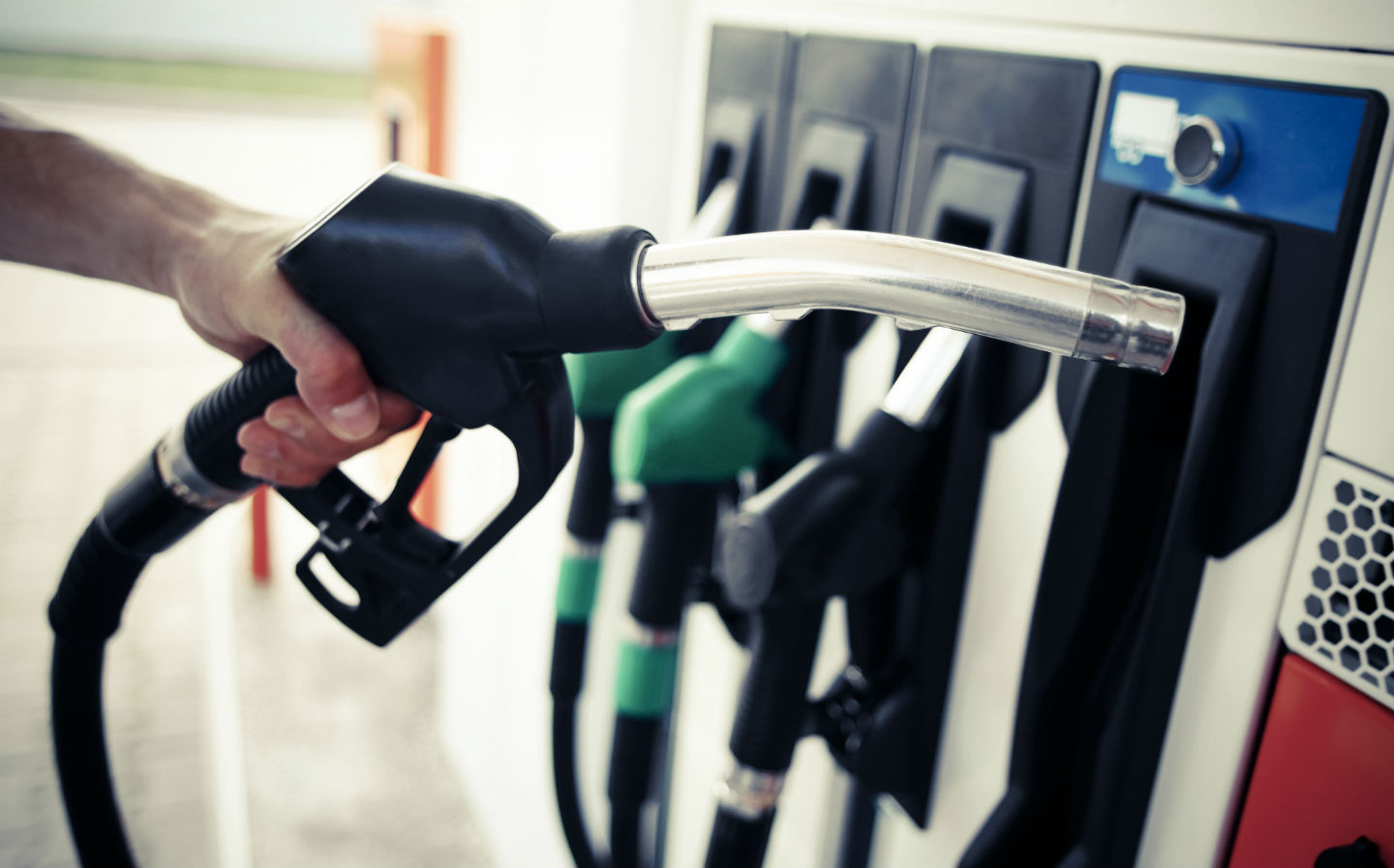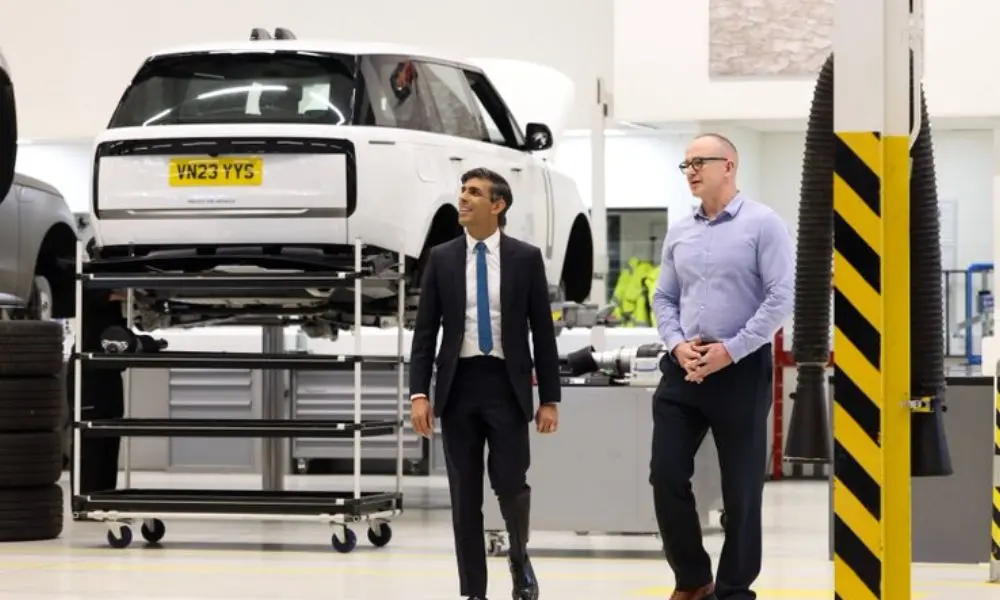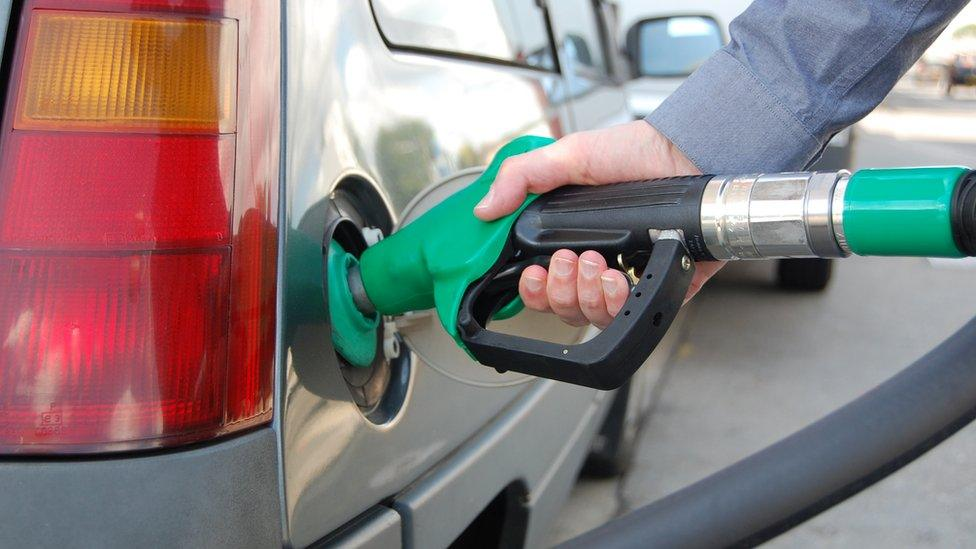UK eases rules for automakers ahead of 2030 petrol car ban.
The government has announced that it will support the British auto industry by easing restrictions on manufacturers switching to all-electric vehicles.
After former Prime Minister Rishi Sunak pushed back the deadline, ministers have reinstated it, and a ban on producing new gasoline and diesel vehicles will take effect in 2030.
Heidi Alexander, the transport secretary, stated on Sunday that she will loosen rules governing how businesses make the transition in order to “protect and create jobs,” even if the government is still committed to the 2030 deadline.
The industry, which confronts an uncertain era following the US announcement of vehicle tariffs, would not be helped by the measures, according to opposition parties.
A 25% tax on automobile imports to the US, a significant export market for the UK auto industry, has been imposed by President Donald Trump.
Although there were plans to phase out gasoline and diesel automobiles before the tariffs were announced, the government presented its most recent involvement as a means of supporting the expansion of auto companies despite potentially drastic changes to the motor sector.
The government claimed to have collaborated with UK automakers to “strengthen its commitment to the phase out” and implement “practical reforms to support industry meet this ambition” at the same time.
Manufacturers who sell cars that don’t satisfy the most recent emissions regulations risk fines of £15,000 under the current electric vehicle (EV) mandate.
This year, 28% of new automobiles sold in the UK must be electric; this goal will increase annually until 2030.
However, manufacturers will now have greater latitude to balance the yearly goals against one another and evade penalties by increasing EV sales in subsequent mandate years.
“Support for the automobile industry will be kept under review as the impact of new tariffs become clear,” the Ministry of Transportation announced.
The previous Conservative government extended the restriction on the sale of new gasoline and diesel vehicles until 2035. However, in its 2024 election manifesto, Labour pledged to reinstate the 2030 deadline.
Leaders in the auto industry have previously cautioned that the high cost of privately purchasing the cars and the dearth of infrastructure for charging stations were preventing drivers from making the changeover to electric vehicles at the rate required to achieve the deadline.
Prime Minister Sir Keir Starmer stated in a Times article that those who wish to buy electric vehicles would receive assistance and that the non-compliance punishment will be lowered to £12,000.
“We’re putting £2.3 billion towards tax breaks for people buying electric vehicles and improving charging infrastructure,” he stated.
The government has announced the following changes:
- To help automakers escape fines, requirements placed on them as they phase out the production of gasoline and diesel vehicles would be loosened.
- After 2030, smaller UK companies like Aston Martin and McLaren will be permitted to continue producing gasoline-powered vehicles.
- Some hybrid cars may remain available until 2035.
The reforms, according to Sir Keir, would “boost growth that puts money in working people’s pockets” and guarantee that “home-grown firms” could export automobiles built in the UK to other countries.
However, opposition business secretary Andrew Griffith reiterated Conservative leader Kemi Badenoch’s assertion that “net zero by 2050 is impossible” and called the initiatives “half-baked.”
According to a liberal Democrat spokeswoman on transportation, the sector “won’t be enough to protect the sector from the impact of Trump’s damaging tariffs,” and claimed that “better incentives” are needed to encourage people to purchase electric vehicles.
After the European Union, the US is the second-largest export market for the UK auto industry.
To “address the new trading terms,” Coventry-based automaker Jaguar Land Rover declared on Saturday that it will “pause” all exports to the US in April.
On Saturday, a separate 10% duty on imports from the UK went into effect; greater rates were applied to certain other large economies.
Read More: Britons urged to stop mowing to help butterflies thrive.





